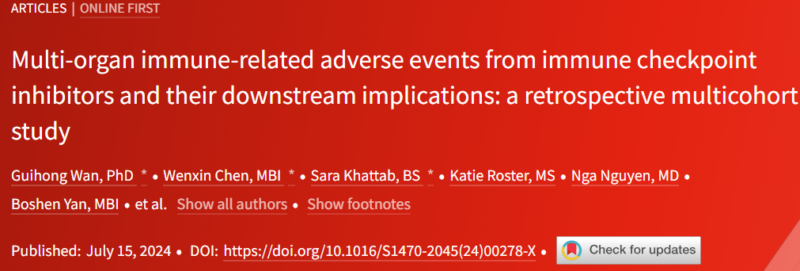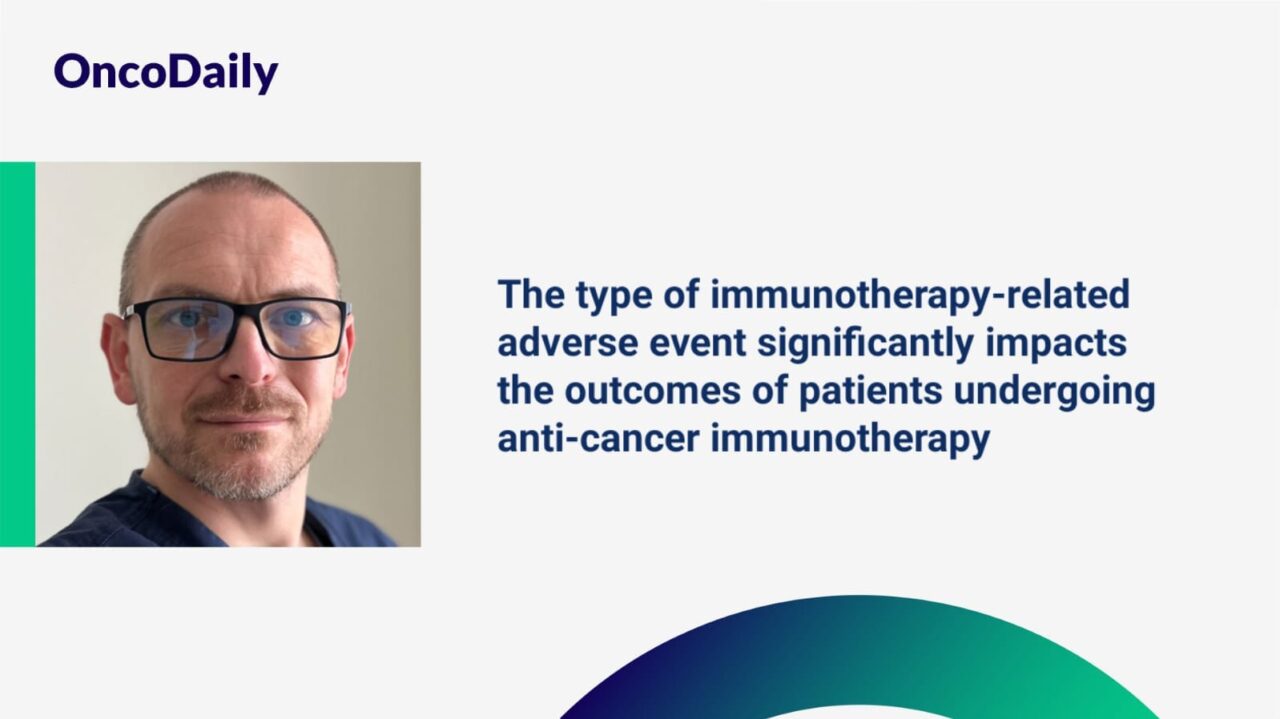Piotr Wysocki recently posted on LinkedIn:
“Understanding the co-occurrence patterns of immune-related adverse events (irAEs) across multiple organs and their impact on patient survival has never been robustly explored. Several available analyses have been limited to single institutions and simple pairwise analyses.
The study by Wan G et al., published online in Lancet Oncology, utilizes large datasets and advanced computational approaches to uncover complex irAE co-occurrence patterns and their prognostic implications in cancer patients treated with immune checkpoint inhibitors. The findings were validated using an independent population-level database, ensuring the robustness and reliability of the results.
The study focused on the patterns and prognostic implications of irAEs resulting from immune checkpoint inhibitors (ICIs). It included patients from Massachusetts General Hospital, Brigham and Women’s Hospital, Dana-Farber Cancer Institute (MGBD cohort), and the TriNetX network who received ICIs from May 31, 2015, to June 29, 2022 (MGBD) and April 30, 2010, to October 11, 2021 (TriNetX).
Patients were propensity score-matched based on demographics, cancer types, and ICI characteristics. Specific rules were applied to identify irAEs, excluding those suspected within three months post-chemotherapy.
The study identified 15,246 ICI recipients from MGBD and 50,503 from TriNetX, with 13,086 from MGBD and 26,172 from TriNetX included after matching. Median follow-up was 317 days (MGBD) and 249 days (TriNetX) and the irAE Prevalence was 37.7% (MGBD) and 30.5% (TriNetX) experienced irAEs.
Seven distinct irAE clusters were identified: endocrine, cutaneous, respiratory, gastrointestinal, hepatic, musculoskeletal, and neurological.
Survival outcomes
- positive prognostic value – endocrine irAEs – (HR 0.53); cutaneous irAEs (HR 0.61)
- negative prognostic value – respiratory irAEs (HR 1.60); neurological irAEs (HR 1.30) clusters.
- lack of prognostic value: gastrointestinal, musculoskeletal, and hepatic irAEs.”
Authors: Guihong Wan, Wenxin Chen, Sara Khattab, Katie Roster, Nga Nguyen, Boshen Yan, Ahmad Rajeh, Jayhyun Seo, Hannah Rashdan, Leyre Zubiri, Matthew J Hadfield, Shadmehr Demehri, Kun-Hsing Yu, William Lotter, Alexander Gusev, Nicole R LeBoeuf, Kerry L Reynolds, Shawn G Kwatra, and Yevgeniy R Semenov.

Source: Piotr Wysocki/LinkedIn
Piotr Wysocki leads the Clinical Oncology Department at University Hospital and the Faculty of Oncology at Jagiellonian University-Medical College in Krakow, Poland. As an advisor to the Polish Ministry of Health, he shapes the national cancer strategy.
His clinical expertise spans the systemic treatment of breast, gynecologic, and genitourinary cancers, with a focus on developing innovative metronomic chemotherapy-based therapies for advanced cancer patients who have undergone prior treatment.
Read other posts by Piotr Wysocki published on OncoDaily.


